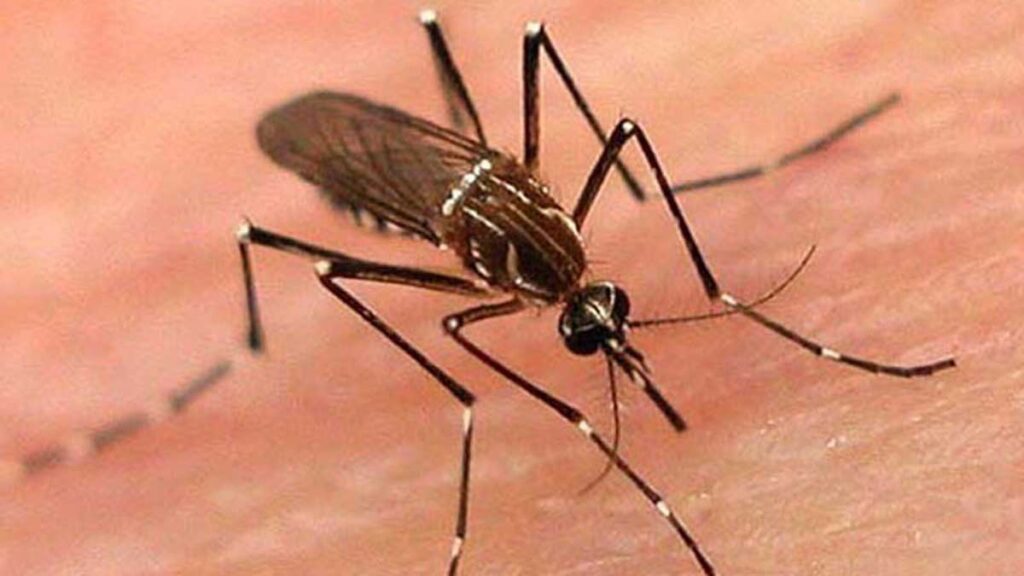
Cases of dengue fever are on the rise in Switzerland, with the Federal Office of Public Health (FOPH) reporting 154 cases since the start of 2023, compared with 68 in 2022. The FOPH blames this increase on the resumption of travel after the COVID-19 pandemic.
Dengue fever is a mosquito-borne viral infection that is common in tropical and subtropical regions. It can cause a range of symptoms, including fever, headache, muscle and joint pain, nausea and vomiting, and a rash. In severe cases, dengue fever can lead to bleeding and shock.
There is no specific treatment for dengue fever, and most people recover on their own within a week or two. However, some people may develop severe complications, such as dengue hemorrhagic fever or dengue shock syndrome, which require hospitalization.
The FOPH is reminding travelers to take precautions to protect themselves from mosquito bites, including using insect repellent, wearing long sleeves and pants, and staying in air-conditioned or screened accommodations.
Why are dengue cases increasing in Switzerland?
There are several reasons why dengue cases are increasing in Switzerland. One reason is the resumption of travel after the COVID-19 pandemic. Dengue fever is common in many popular tourist destinations, such as Southeast Asia, South America, and the Caribbean. When people travel to these areas, they can be exposed to the virus and then bring it back home with them.
Another reason for the increase in dengue cases is climate change. Warmer temperatures and increased humidity create more favorable conditions for mosquitoes to breed and thrive. This means that there are more mosquitoes around to spread the virus.
Finally, the tiger mosquito, which is one of the main vectors of dengue fever, has become established in Switzerland in recent years. The tiger mosquito is more aggressive than other mosquito species and is more likely to bite people.
What can be done to prevent dengue fever?
The best way to prevent dengue fever is to avoid mosquito bites. Travelers should take the following precautions:
- Use insect repellent that contains DEET, picaridin, or IR3535.
- Wear long sleeves and pants, especially at dawn and dusk when mosquitoes are most active.
- Stay in air-conditioned or screened accommodations.
- Use a mosquito net if sleeping outdoors.
If you are traveling to an area where dengue fever is common, you should also be aware of the symptoms of the disease and seek medical attention immediately if you develop any.
What is the Swiss government doing to prevent dengue fever?
The Swiss government is taking a number of steps to prevent dengue fever, including:
- Educating the public about the risks of dengue fever and how to protect themselves from mosquito bites.
- Monitoring the spread of the tiger mosquito and taking steps to control its population.
- Working with other countries to develop vaccines and treatments for dengue fever.
Conclusion
The increase in dengue cases in Switzerland is a reminder that mosquito-borne diseases are becoming a more common problem in temperate countries. It is important for travelers to take precautions to protect themselves from mosquito bites, and for the public to be aware of the symptoms of dengue fever. The Swiss government is taking a number of steps to prevent dengue fever, but more needs to be done to address the long-term risks posed by climate change and the tiger mosquito.
Additional information
In addition to the above, here are some other things that people can do to help prevent dengue fever:
- Remove standing water from around their homes, as this is where mosquitoes breed.
- Keep their homes clean and free of clutter, as mosquitoes are attracted to these areas.
- Use mosquito nets on their beds and windows.
- Wear light-colored clothing, as mosquitoes are less attracted to light colors.






